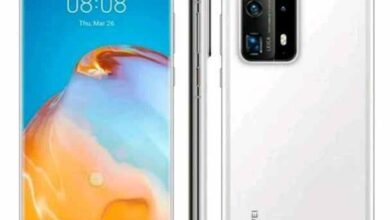Huawei Phone Price In Nigeria
Ren Zhengfei, a former People’s Liberation Army officer, established the corporation in 1987. (PLA).
Initially focused on the production of phone switches, Huawei has expanded its business to include the construction of telecommunications networks, the provision of operational and consulting services and equipment to enterprises both inside and outside of China, and the production of consumer communications devices.
More than 170 countries and regions now use Huawei goods and services.In 2012, it surpassed Ericsson to become the largest producer of telecommunications devices in the world.
In 2018, it surpassed Apple to become the second-largest producer of smartphones in the world, after Samsung Electronics.[9] Huawei announced US$108.5 billion in revenue for the year 2018. in a nutshell.
Despite its success on a global scale, Huawei has encountered challenges in some markets due to excessive state support, connections to the PLA and Ministry of State Security (MSS), and worries that Huawei’s infrastructure equipment may allow Chinese government surveillance.
The United States and its partners have urged businesses to avoid working with Huawei and other Chinese telecommunications firms like ZTE as 5G wireless networks are developed.
According to Huawei, there is “no greater cybersecurity risk” from its products than from any other vendor’s, the US has not provided proof of espionage, and the accusations are hypocritical because the US government itself runs state surveillance programs.
However, experts point out that the People’s Republic of China’s 2014 Counter-Espionage Law and 2017 National Intelligence Law are extensive laws that compel Huawei and other businesses to collaborate in gathering intelligence.
With 25,000 Huawei employees having previously served in the MSS or the PLA, including former chairwoman Sun Yafang, it is “no secret that employees frequently work with intelligence officials embedded in the company,” according to former employees.
Intelligence agencies have also linked Huawei to a number of telecom network hacks[21][22], and Nortel and Cisco Systems, two competitor telecom manufacturers, have linked Huawei to industrial espionage.
Questions about Huawei’s ownership and control continue despite claims that it runs as a private business. Questions about Huawei’s ownership and influence continue, despite assertions to the contrary.
In China’s “techno-nationalist development strategies,” Huawei is regarded as a national champion. The company has received substantial support, including financing from state-owned banks, and China has also lobbied for its inclusion in 5G Network in international forums and threatened trade retaliation against nations that might consider doing so.
The United States Department of State has sanctioned Huawei for its role in the mass surveillance and detention of Uyghurs in Xinjiang internment centers.
The US Department of State has sanctioned Huawei for its role in the mass surveillance and detention of Uyghurs in Xinjiang internment centers. Huawei also tested a facial recognition AI that can identify characteristics unique to certain ethnic groups and notify authorities when a member of that ethnic group is nearby.
Due to claimed prior willful violations of U.S. sanctions against Iran, Huawei was prohibited from conducting business with American companies in the midst of an ongoing trade war between China and the United States.
Donald Trump, the president of the United States, and China achieved a trade agreement on June 29, 2019, and Trump also declared that he would relax the aforementioned sanctions against Huawei. In June, Huawei eliminated 600 positions at its Santa Clara research facility.
In December 2019, founder Ren Zhengfei announced that the company was moving the facility to Canada because the restrictions would prevent them from communicating with US workers.
After the U.S. sanctions against them in 2020, Huawei decided to sell the Honor brand to a state-owned company of the Shenzhen municipal government in order to “ensure its survival”.
The Federal Communications Commission (FCC) prohibited the selling and import of Huawei-made equipment in November 2022 for reasons of national security.
-
Mobile Phone Price Review In Nigeria

Huawei MatePad Pro 5G Futures and Price In Nigeria
Huawei MatePad Pro 5G features a 10.8-inch IPS LCD panel display with a screen resolution of 1600 x 2560 pixels…
Read More » -
Mobile Phone Price Review In Nigeria

Huawei P40 Pro Plus 5G Futures and Price In Nigeria
Huawei P40 Pro Plus 5G is the bigger version of the P40 and P40 Pro from the Chinese smartphone manufacturing…
Read More » -
Mobile Phone Price Review In Nigeria

Huawei P40 Price In Nigeria & Specifications
Huawei P40 is the latest smartphone from the Chinese manufacturing company Huawei in their P-series. The Huawei P40 comes with…
Read More »
